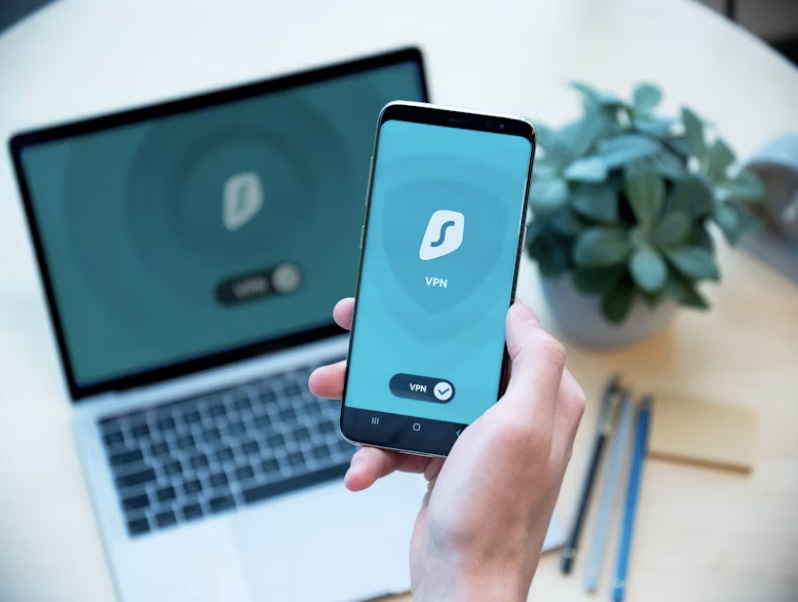

Security and Privacy Factors to Keep in Mind When Utilizing VPNs
Virtual Private Networks (VPNs) have become a tool, for enhancing privacy and security. By encrypting your internet connection and masking your IP address VPNs can safeguard your data from hackers, snoopers and government surveillance. However not all VPN services offer the level of protection. Using a VPN involves specific security and privacy considerations. This detailed guide delves into the aspects to think about when using VPNs to ensure you make the most of their advantages while minimizing any risks.
Understanding the Operations of VPNs
Before delving into these considerations it is important to grasp how VPNs function. A VPN establishes a secure encrypted link between your device and a remote server managed by the VPN service provider. This link directs your internet traffic through the VPN server concealing your IP address and encrypting your data to make it challenging for parties to monitor your actions.
Essential Security and Privacy Aspects
1. Selecting a Reputable VPN Service Provider
The security and privacy of your VPN connection significantly rely on the service provider you opt for. Here are some factors to take into account;
Tips for Trustworthy Providers;
Zero Logs Policy; Verify that the chosen VPN provider upholds a zero logs policy indicating they do not retain any details, about your endeavors.
This policy ensures that even if the provider is required to share information there will be no data revealed.
When evaluating a provider it's important to check their reputation through reviews, user feedback and industry assessments. Trustworthy providers typically receive reviews and recommendations, from cybersecurity experts.
It's advisable to opt for providers that're transparent about their ownership, operations and privacy policies. Some reputable VPNs even undergo audits to validate their claims.
Understanding VPN Encryption
Encryption plays a role in VPNs by safeguarding your data from access. Consider the following points;
Encryption Tips;
Encryption Protocols; Make sure the VPN utilizes encryption protocols like OpenVPN, IKEv2/IPSec or WireGuard for enhanced security.
Encryption Standards; Choose VPN services that implement AES 256 encryption as it is considered the current industry standard for robust encryption.
Data Integrity; Verify that the VPN offers mechanisms for maintaining data integrity to prevent tampering or unauthorized modifications during data transmission.
Assessing VPN Jurisdiction
The location of a VPN provider can influence your privacy due to regulations, on data retention and government surveillance practices.
Tips, on Choosing the Right Jurisdiction for Your VPN;
Opt for VPN services located in countries with privacy laws and no mandatory data retention rules, like Switzerland or the British Virgin Islands.
Be wary of VPN providers based in countries that're part of surveillance alliances like Five Eyes, Nine Eyes and Fourteen Eyes as they might be more susceptible to government data requests.
Evaluating Security Features of a VPN;
Look for security features that can boost your VPNs protection.
Key security features to consider include a kill switch that automatically disconnects your internet if the VPN connection drops, DNS leak protection to prevent exposure of your browsing activities and multi hop VPN connections for added security layers.
Considering Speed and Performance of a VPN;
Apart from security performance is crucial for a VPN experience.
Tips to enhance performance include choosing providers with a server network, in locations and opting for VPNs without bandwidth limits if you engage in streaming or file downloading.Test the speed of your VPN connection both during hours and quieter times to make sure it meets your requirements.
Understanding Potential Privacy Risks
Keep in mind that using a VPN doesn't guarantee anonymity. Here are some privacy risks to be aware of;
Privacy Risk Recommendations;
VPN Logging; Even if a VPN states it doesn't keep logs there's always a chance that some data might be logged. It's important to check the providers privacy policy.
IP Leaks; Use tools to check for IP leaks and ensure that your actual IP address isn't exposed while using the VPN.
Third Party Trackers; Some VPN applications may have third party trackers embedded. Utilize tracker detection tools to find and deactivate these trackers.
Safeguarding Against Malware and Phishing
A VPN, on its own cannot shield you from all cyber threats, such as malware and phishing attempts.
Protection Suggestions;
Utilize Antivirus Software; Pair your VPN with trusted antivirus software for defense against malware.
Exercise Caution with Links; Refrain from clicking on links or attachments even when utilizing a VPN.
Activate Browser Security Features; Make use of browser security features and add ons that offer protection, against phishing scams and malicious websites.
8. Considering Device Compatibility and Multi Platform Support
Make sure the VPN works with all your devices and platforms.
Tips, for Compatibility;
Support for Multiple Devices; Opt for VPN providers that allow you to connect devices simultaneously to safeguard all your gadgets.
Availability on Various Platforms; Check if the VPN has apps for platforms like Windows, macOS, iOS Android and Linux.
Understanding the Limits of VPNs
Although VPNs offer security and privacy advantages they are not a one size fits all solution for threats.
Tips on Limit Awareness;
End to End Encryption; While VPNs encrypt data between your device and the VPN server they do not provide end to end encryption. For communications consider using communication services.
Legal Boundaries; Using a VPN does not legalize activities. Adhere to laws and regulations when utilizing VPN services.
Privacy in Behavior; Watch your behavior carefully. Refrain from sharing information on websites and public Wi Fi networks.
Regularly Reviewing and Updating Your VPN Settings
To maintain security levels it's important to check and update your VPN settings.
Tips for Reviewing and Updating;
Software Updates; Keep your VPN software up, to date to take advantage of the security enhancements and features.
Configuration Checks;
Make sure to check the settings of your VPN to guarantee that it aligns with your security and privacy requirements.
Stay Updated; Stay abreast of cybersecurity updates and news to be informed about risks and recommended practices.
In Summary
VPNs serve as a tool, in bolstering your security and privacy; however their efficacy hinges on meticulous selection and proper utilization. By opting for a service provider grasping encryption protocols assessing factors scrutinizing security attributes and acknowledging potential privacy vulnerabilities you can optimize the advantages of utilizing a VPN. Moreover reinforcing your VPN usage with security measures, like antivirus software and prudent online conduct will enhance safeguarding your information. Remain alert and knowledgeable to ensure an private journey.